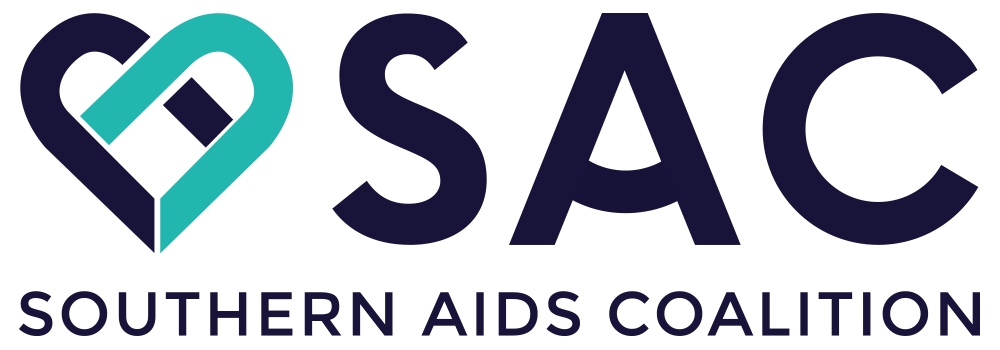

Southern AIDS Coalition, ¿Û¿Û´«Ã½address effects of racism, mistrust on HIV-impacted communities
February 25, 2020
Contacts:
Jaquisha Hudson, Southern AIDS Coalition
Michael Tullier, APR, ¿Û¿Û´«Ã½University Office of Communications, Public Relations and Marketing
Feb. 29 update: visit the for archived Facebook Live streaming video from several of the Feb. 28 summit sessions.
***
On Friday, Feb. 28, the (SAC) will partner with ¿Û¿Û´«Ã½University to present âLifting the Veil on HIV.â This summit, held at sites near and on the universityâs campus, will address the implications racism and medical mistrust have on communities impacted by HIV.
The South â and Alabama in particular â has a deep relationship with medical mistrust. In 1932, Macon County, Alabama, became home to the â.â It remains the longest and most immoral health and medical treatment study ever conducted in U.S. history. This non-therapeutic study of the progress of untreated syphilis in human beings recruited poor African-American men living in rural ¿Û¿Û´«Ã½and throughout Macon County. The men were uninformed of their syphilis status and untreated for the disease without their informed consent.
The physical mistreatment and non-treatment for syphilis has contributed to generational health problems, as well as ill feelings and mistrust by the families in these communities. The experiment ended in 1972.
Today, the South is at the epicenter of an HIV epidemic. , more than 52% of all new HIV diagnoses in the nation are in the South. This is 36% higher than the national average.

âHIV is a racial justice issue that impacts the black community at disproportionate rates,â said Aquarius Gilmer, SACâs director of government affairs and advocacy. âCompounding these disparities is the reality of persistent racism within and among public and private health systems and stakeholders that fuels medical mistrust. The legacy and burden of medical mistrust was exacerbated by the U.S. Public Health Serviceâs government-sanctioned âStudy of Untreated Syphilis in the Negro Male.â Blacks continue to experience poorer health outcomes and decreased qualities of life as a result of this mistrust and racism in public and private health systems.
Despite advances that can improve oneâs medical well-being and quality of life, Gilmer said that mistrust among those who require care the most remains rampant.
âBiomedical advances in HIV prevention and care, such as PrEP, PEP and Treatment as Prevention, will not be fully realized if the community questions the motives of public health programs and providers,â he explained. âThis convening comes at a critical time as we must work together, those in both private and public health, to identify various strategies â including investments â that build trust. No one entity can rebuild that trust alone.â
âLifting the Veil on HIVâ will convene a think tank to develop solutions for addressing the medical mistrust that resulted from the U.S. Public Health Service Syphilis Study at Tuskegee, and address the impact that mistrust is having on the fight against the Southern HIV epidemic.

âThe pairing of historically black colleges and universities with community organizations such as the Southern AIDS Coalition is a major step toward bringing to the table those populations most dramatically impacted by HIV with government entities responsible for healthcare administration,â said Dr. Vivian Carter, chair of Tuskegeeâs Department of Psychology and Sociology. âIt is crucial that we bring together a diverse coalition of partners headed by minority groups to address the barriers to healthcare across the rural South and to advance solutions that will make a difference in the fight against the nationâs HIV epidemic.â
For more information about the summit â and to register online â visit . A full program of the Feb. 28 âLifting the Veil on HIVâ summit, including session moderators and panelists, is available for download. The dayâs schedule includes:
St. Andrews Episcopal, 701 W. Montgomery Rd., Tuskegee (across from the universityâs Brimmer Hall)
- 7 a.m. to 9 a.m.: âBearing the Image of God Before and Beyond an HIV or AIDS Diagnosisâ
Kellogg Conference Center, 1 Booker T. Washington Blvd., ¿Û¿Û´«Ã½University
- 10 a.m. to 11:30 a.m.: âFrom Syphilis to HIV: The Enduring Role of the U.S. Public Health Service Study on Black Population Healthâ
- 12:30 p.m. to 1:30 p.m.: âPanel: Where Do We Go From Here: Racism or Restorative Justice in Public Healthâ
- 1:30 p.m. to 2:30 p.m.: âPanel: HIV Public Health Research and Workforce Strategy Sessionâ
The 10 a.m. and 12:30 p.m. sessions will be streamed live on the Southern AIDS Coalitionâs Facebook page at .
In addition to the Southern AIDS Coalition and ¿Û¿Û´«Ã½University, the summit is presented in partnership with Avita Pharmacy, Black AIDS Institute (BAI), GLADD, Gilead, Johnson & Johnson, Merck, and the National Association of County and City Health Officials.
***
 About the Southern AIDS Coalition: The Southern AIDS Coalition (SAC) is a non-partisan coalition of government, community and business leaders working alongside thousands of people living with HIV and our allies to end the HIV epidemic in the South. We do this through public health advocacy; capacity-building assistance; PLHIV leadership development; research and evaluation; and strategic grant making. To learn more, visit .
About the Southern AIDS Coalition: The Southern AIDS Coalition (SAC) is a non-partisan coalition of government, community and business leaders working alongside thousands of people living with HIV and our allies to end the HIV epidemic in the South. We do this through public health advocacy; capacity-building assistance; PLHIV leadership development; research and evaluation; and strategic grant making. To learn more, visit .
© 2020, ¿Û¿Û´«Ã½University